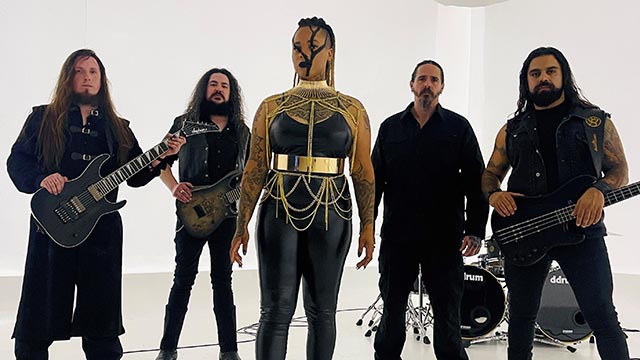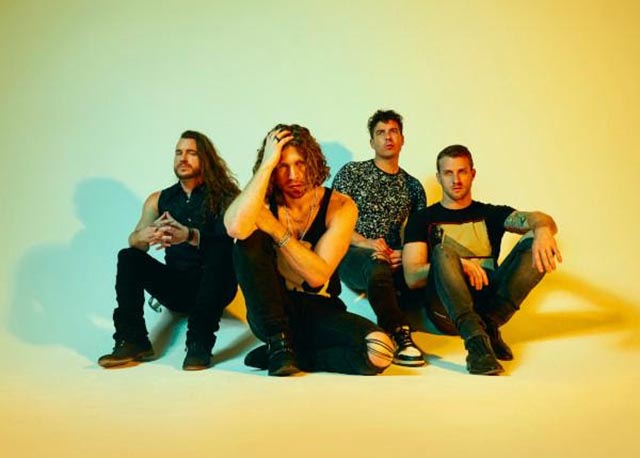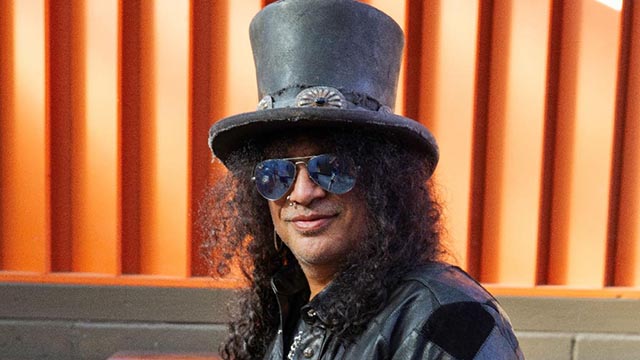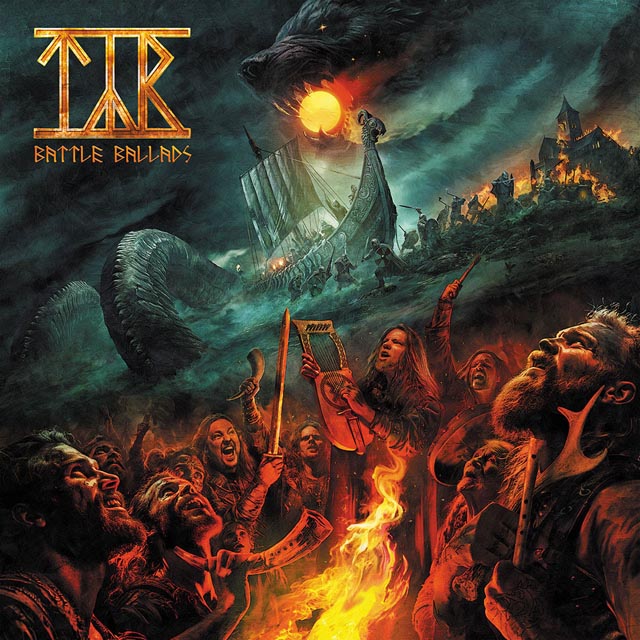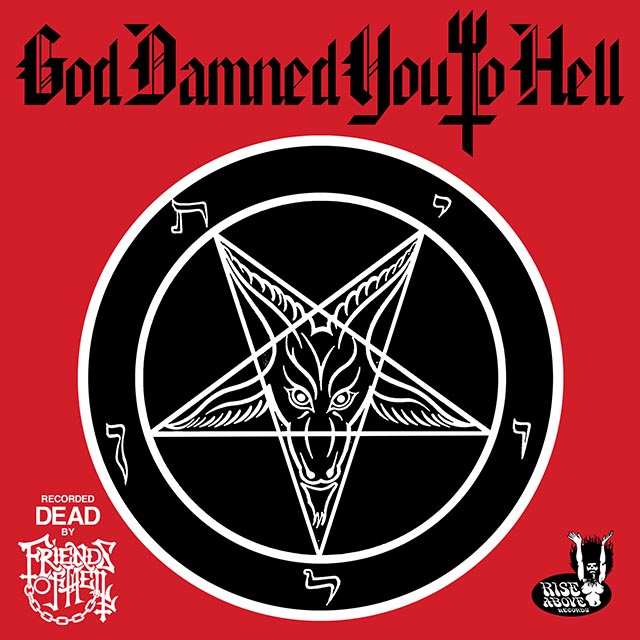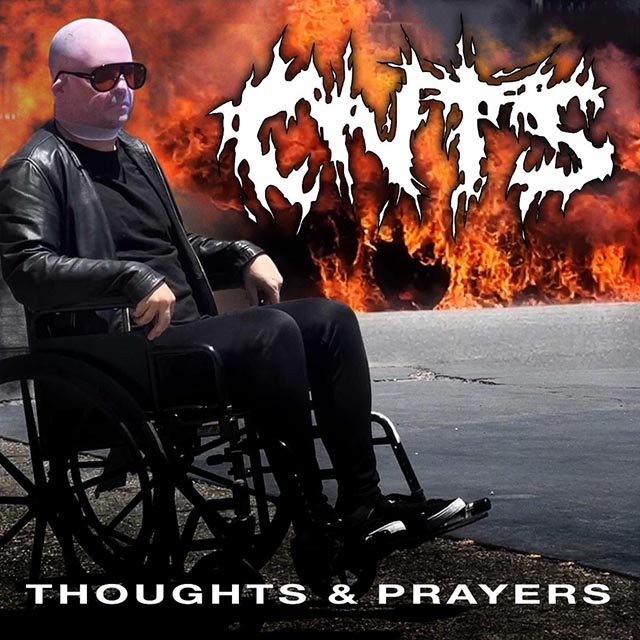 Nonpoint (2012) and The Return (2014)
Nonpoint (2012) and The Return (2014)
It was the biggest lineup change, we got three new guys, added another guitar player. We got Rasheed, Adam, and at the time Dave and it felt like we were hitting the reset button. I felt the best way to start over was to drop a self-titled.
What led to you deciding to add a second guitar player?
Just us always wanting to have a second guitar player. It’s something that we, an idea that we bounced around for over a decade with Andy and he really didn’t want to share the responsibility. He wanted to stay one guitar and we were writing music with two guitarists and having to constantly change it when we wanted to go play live so people were missing parts. We decided once Andy bowed out that we were gonna go the direction that we wanted to go.
How long had you been writing music with two guitars?
Andy was the kind of guitar player that would write two guitar parts constantly so we would always ask him “what are you gonna do when we get on stage, it’s like you’re not going to be able to physically do that.” So it was a bit of a battle.
Rasheed Thomas: It was typical guitar stuff in the studio. There’s always like 12 guitars, 17 tracks and layers. You know, it’s like ‘you’re only one dude!’
What did having a second player do to your older material when you play live?
ES: Widens it. I mean visually it’s amazing. Having B.C. in the band, we’ve been chasing the guy for fucking ten years now so thank god we’ve finally got him here. As soon as we lost Andy, he was the first call that we made, but he was already in another band. Then again, when we were dealing with lineup issues. We called him again and again and he was in another band so this time around, the third time was the charm.
What bands had you been in?
BC Kochmit: I was in a band called Switched originally back in the day, that’s where I originally met these guys. Jason Bieler produced our first album, so there’s a lot of history with them, and just kind of kept in touch throughout the years. I never actually got the call the first time they wanted me to join because it got vetoed by a third party band who they had lunch with. I’m not gonna say who, but thanks guys, I would’ve took that fucking gig. And then the second time I was in a band called Eye Empire and we four, five years of starting this band up, I had thousands and thousands of dollars tied up, and the record deal is basically going down the same week they’re asking me. It was the hardest no I ever had to say in my life in this business, turning them down the second time they asked.
E: And then we were like “fuck that guy!”
Rasheed: Yeah.
E: We aren’t ever calling him again. Then we called him.
Did you really think like, “ah, fuck him?”
E: No, no. We were more like,”fuck, we missed him.”
BC: The timing was horrible, you know.
What made you say yes this time?
BC: Just that I was able to do it. I’ve always been a fan of Nonpoint, since way back in the Switched days.
E: If it had happened another way it wouldn’t be this way. We wouldn’t of had you guys, it would’ve been weird. Now, this is the best I’ve ever felt in the band. You know, I’m so happy the way it actually happened and I wouldn’t change anything for anything.
At the time, you were on Razor and Tie. It seemed like your album sales were actually going up, so you were being met with more success.
E: Yes, absolutely. I think the music had a lot to do with that. I think we were writing the right songs, writing the right album. But they weren’t the right label for us. And it was reminiscent of the Development days. We don’t like to be influenced that much with our art and our music and the way we look and the way we present ourselves or our album artwork. There’s five members of this band, and I have enough opinions to juggle and align without having to juggle another ten opinions that haven’t been around for the last 14 years and then try to convince them of something that I shouldn’t have to convince them of. It was more of a transitional period, because we were writing the right music but we were at the wrong label.
Do you feel like there was more of that on The Return or were they doing it from the get-go?
E: They were doing it from the – I get it. I get why A&R, label-heads and radio staff, why everyone needs to have an opinion and needs to have a say, because they’re writing the fucking checks, I totally get it. But, with a band like us that has been around for 15 years, if you sign our band, you’re signing Nonpoint to write a Nonpoint record. You can’t sign our band expecting us to write another record for you because you want to make us into another band, and that was where we felt like that was the struggle, you know and there not even close to that kind of struggle here
You were still selling records, still doing better than you had been like sales-wise.
E: Yeah, absolutely, single-wise and chart-wise, yes. Sales-wise, we did alright. But, To the Pain outsold both those records.
Rasheed: It’s like a test of the time though. To The Pain came out back in the day. People bought records back then.
E: But the difference is is our opinion of a single vs. their opinion of a single. Their opinion of a single sold 15,000 singles. My next choice of the second single sold 60,000 because I know my fan-base. And I know my fans. And I know what I’m looking to present myself as. And that’s the difference, is that everyone on the sales team has to be on the same page of what we’re selling. If you sign Nonpoint, trying to sell a Nickelback record, you’re barking up the wrong tree.
 The Poison Red (2016)
The Poison Red (2016)
That brings us to now. What led you to sign to Spinefarm?
E: The relationship between our previous manager and the Spinefarm guys helped, but really the deciding factor was speaking to the guys in 36 Crazyfists and getting a band’s opinion what it’s like to be on the label, and especially a band that I’ve known for the last 18 years of my life. It was nice to get that kind of reaction from Brock that when I spoke to him he was like “sign that fucking deal, bro.” He was like “man, I’ve never felt better on a label, never felt more comfortable, never felt more adored.” I was like ‘shit, man, that’s sounds like… the kind of home I want to be apart of.’ And then sitting down with everyone, all these guys have been part of the Universal group for years, so it’s good to have seasoned vets, it’s awesome.
Describe the album, which most people haven’t heard yet.
E: It’s a beast man. The title is perfect. It is.
B.C.: It’s got a little something for everybody, I think.
E: It’s got a very alarming theme to it. And I think rock fans have been waiting for this kind of record after hearing a bit of a medium paced kind of chart for the last year and a half, two years.
What do you think of the current state of rock radio?
E: It’s stagnant, it’s really, really bland and just it doesn’t have any flavor. I’m losing track of who’s who and I actually listen to radio at home. I listen to Sirius and I hear the bands and there’s really nothing that’s shaking me like Crobot, bands that fucking rock, that really are awesome live. Thank god At the Drive-In is back out, bands that are really doing it fucking for real, are talented, do it on tape and do it live. Don’t have 15 fucking tracks running, dudes backstage singing for them. What’s missing that I hope this record is going to bring back is the fucking show. People need a show again.
Rasheed: People are really relying on technology.
E: They sit back and not moving on stage smf just standing there.
B.C.: “I don’t know, I can’t really sing that… It’s okay we’ll put it on tape.” It’s like Elias said, you write a song with five guitar parts and it’s like “well it doesn’t sound the same when we play it live, we’ll just put it on tape.”
E: It’s like they’re lego-ing together this thing that isn’t really even them and putting it out and it’s really middle of the road. We’re hoping that this record separates us from that.


